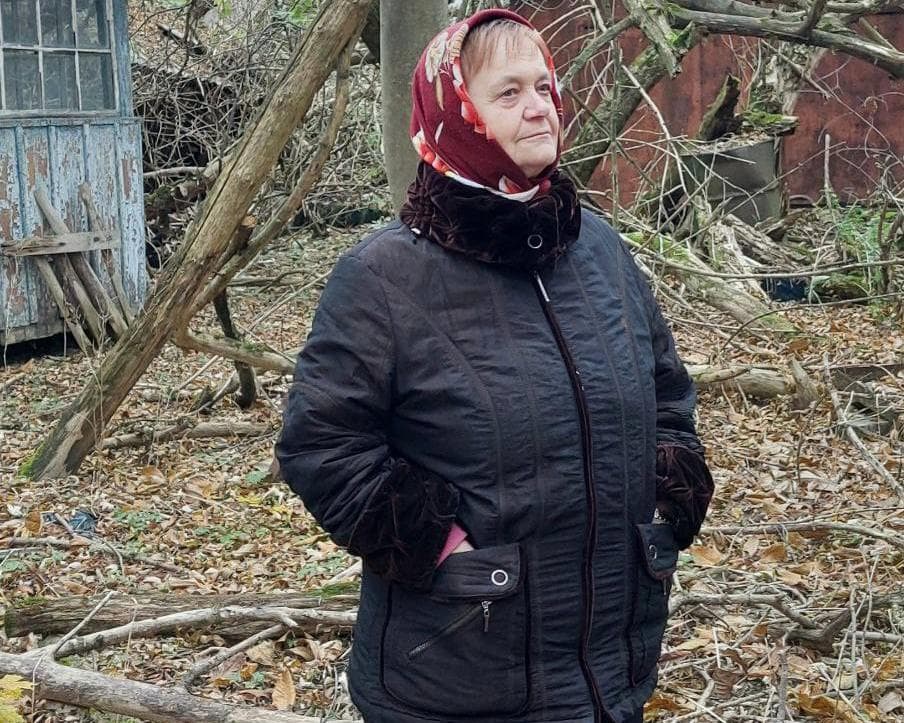‘She went through hell’: widow of Chornobyl engineer is killed in Russian drone strike on Kyiv

Click any word to translate
Original article by Luke Harding in Kyiv
The widow of the first Soviet engineer to die in the Chornobyl nuclear power plant explosion was killed on Friday in Russia’s massive drone and missile attack on the Ukrainian capital, Kyiv.
Volodymyr Zelenskyy described Nataliia Khodemchuk as the victim of a “new tragedy caused by the Kremlin”, nearly four decades after her husband, Valerii, was killed inside Chornobyl’s nuclear reactor number four.
Valerii was the only plant worker whose body was never recovered. A circulating pump operator, he was in the reactor’s main northern hall in April 1986 when an explosion ripped through the unit. His remains are still under the rubble.
After the blast, Nataliia Khodemchuk was evacuated from her home in the town of Pripyat, and given an apartment on Kyiv’s left-bank. On Friday, a drone crashed into the side of her building, known as Chornobyl house, on Honoré de Balzac Street in the Troieshchyna district.
She suffered 45% burns and died later in hospital. Six other people were killed in the attack. The Kyiv apartment block is home to other former Chornobyl workers, including Oleksiy Ananenko, who dived into a tank beneath the reactor, preventing a second explosion.
Ukraine’s state agency for exclusion zone management said Khodemchuk had been due to take part in a photoshoot to mark the 40th anniversary of the disaster. “We lost a woman who went through Chornobyl hell, lost her husband, raised children and withstood tragedies that would break anyone. But not her,” it said.
“Nataliia lived with dignity, love, and a quiet strength that inspired everyone who knew her personally or through her story. She was cheerful, supported others, and shone. Now her voice joins the voices of all innocent Ukrainians killed by Russian terror.”
It added: “The pain of this loss is unbearable. Russia proves its true face every time: a terrorist country that recognises neither humanity nor compassion.”
The couple met in the 1970s in Pripyat’s canteen, where Nataliia worked as a salesperson. They had two children – a son, Oleh, and a daughter, Larysa. In the hours after the 1986 blast, she visited Chornobyl’s medical unit and morgue in search of her missing husband.
She was instructed to pack a few belongings and to evacuate Pripyat, together with her children and other nuclear families. “They left with only small bags for three days. As it turned out it was forever,” Tamara Khrushch, a Ukrainian journalist, wrote in a tribute on Facebook.
Khrushch – who interviewed Chornobyl survivors for a TV documentary series – said Russia’s drone attack on Friday had left many of them homeless for a second time. “I’m stunned. Nataliia suffered severe burns. She was already in poor health with chronic diseases because of the 1986 accident,” she said.
In recent months, the Kremlin has dramatically escalated its aerial attacks on Ukraine’s energy infrastructure. Most cities and towns experience frequent blackouts, including Kyiv and its presidential palace. Zelenskyy has called on allies to help bolster its air defences systems.
Writing on social media, he said the Russians last week “launched nearly 1,000 attack drones, nearly 980 guided aerial bombs and 36 missiles of various types”. Overnight, there were strikes on Ukraine’s second city, Kharkiv, and the Odesa and Dnipro regions, he said.
“Every night requires multi-component air defence – air defence systems, combat aviation, mobile fire groups, interceptor drones. We are actively working with partners … to reinforce Ukraine’s protection,” he wrote.
Additional reporting by Artem Mazhulin